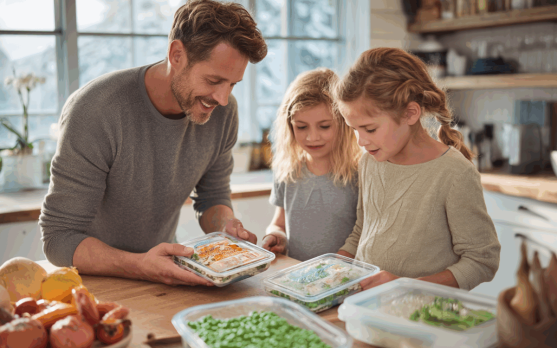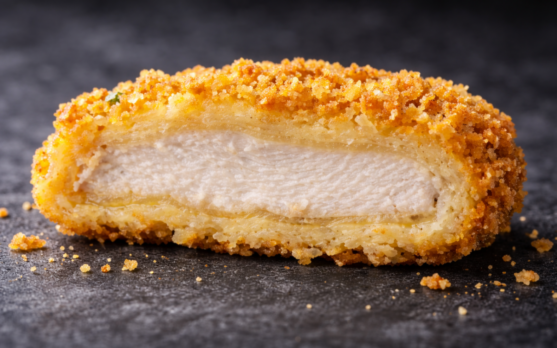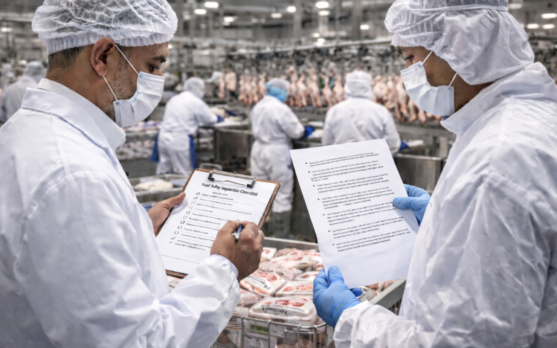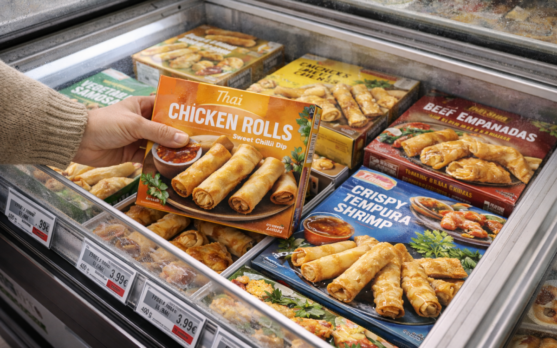"The Green Label Dilemma" - Conscious Shopping or Marketing Mirage?
Everywhere you look, food products shine with green badges, eco logos, and sustainability slogans. But is the promise real, or just packaging glitter? In this episode, we dig into what separates genuine eco-efforts from greenwashing—and why consumers are starting to push back.

There’s something almost ironic about today’s supermarket. The louder a product claims to be green, the more suspicious it feels. You walk past rows of ice creams wrapped in matte pastel packaging with leaves printed on them, boxes of frozen peas shouting about carbon offsets, and eco-emblems so generic you’d think sustainability had become just another flavor.
And maybe it has.
See, somewhere along the way, “green” turned from a commitment into an aesthetic. And now we’re surrounded by it. From frozen pizzas that “support local farms” to smoothie packs “saving the planet one blend at a time,” the average consumer can’t help but wonder: Is this real, or just the new marketing uniform?
People aren’t stupid. They’ve learned. They've seen too many “eco” products end up in the same waste stream as everything else. They’ve paid extra for something that promised planet-friendliness, only to realize it was printed with vague language and no actual proof. And they’re over it.
But here’s where it gets complicated. Some brands really do the work. They optimize logistics to reduce emissions. They cut out plastic wherever possible. They partner with farms that use regenerative techniques. And yet, in the jungle of half-truths and clever slogans, these honest efforts are hard to spot. The loudest don’t always have the cleanest hands.
There’s a kind of fatigue setting in-a quiet skepticism growing in shoppers’ minds. The packaging says one thing, but their gut says otherwise. And that doubt, that internal tension, is creating a huge shift in what people trust, what they buy, and what they tell their friends about.
Frozen food in particular is under pressure. It already battles a perception problem-many still associate it with compromise. But now, add the green factor, and you’ve got a double standard. A product has to prove not just taste and value, but environmental merit too. And that's a high bar in a category still trying to redefine itself.
You can see it in micro-movements. A mom posting on social about a new frozen veggie brand that lists its farm suppliers by name. A comment thread exploding around a company that reduced its packaging weight by 40%. These aren’t global headlines. They’re trust signals-quiet, real, and earned.
The big shift? Proof. Not claims. People are starting to care more about what’s behind the words than the words themselves. They want to know how a company cuts emissions, not just that it does. They want metrics, not metaphors. And while they might not dig for it every time, they expect it to be available, clear, and honest when they do.
Here’s the thing no brand wants to hear: the days of getting credit for intention are over. In 2025, it’s execution that counts. You can’t win hearts with symbols anymore. Not when those symbols have been plastered across everything from energy drinks to toilet paper.
So what should a frozen food brand do?
First, drop the fluff. If your supply chain uses renewable energy, say it plainly. If your trays are made from recycled PET, show the stats. If your vegetables come from biodiverse farms in Northern Italy, tell that story-but tell it in your own voice, not through another borrowed buzzword.
Second, own your limits. Nobody’s perfect. If your packaging is still in transition, say so. Consumers are far more forgiving of imperfection than they are of deception. There's power in honesty-and these days, it stands out more than a dozen "100% planet-friendly" icons ever could.
Finally, find your focus. Not every product needs to scream sustainability. Sometimes, subtlety speaks louder. A clean layout. A quiet message. A sentence that says, “We’re working on this-and here’s how.” That’s what builds loyalty now.
What’s clear is that the “green label” era is no longer a selling point in itself. It’s a test. A moment of truth. And when the curtain’s pulled back, only brands with depth will remain.
Part of the series: GLOBAL CONSUMPTION - The 7 Waves
Explore the full editorial journey through seven powerful shifts redefining how we eat, shop, and connect.
Conclusion
The green label boom is evolving into a reckoning. Consumers are no longer satisfied with symbols—they’re demanding substance. For frozen-food and retail brands alike, sustainability isn’t optional: it’s a challenge of authenticity. And in an age of scrutiny, only the transparent and genuinely committed will thrive.
Essential Insights
Eco-labels are not enough—today's consumer demands proof, not promises. Brands that back their green claims with transparent action will emerge as leaders, while vague messaging risks mistrust and irrelevance.




